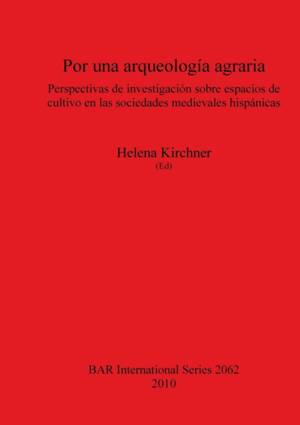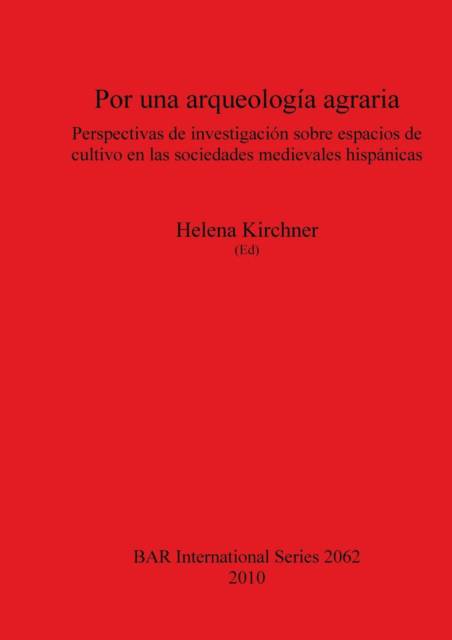
- Retrait gratuit dans votre magasin Club
- 7.000.000 titres dans notre catalogue
- Payer en toute sécurité
- Toujours un magasin près de chez vous
- Retrait gratuit dans votre magasin Club
- 7.000.000 titres dans notre catalogue
- Payer en toute sécurité
- Toujours un magasin près de chez vous
Por una arqueología agraria
Perspectivas de investigación sobre espacios de cultivo en las sociedades medievales hispánicas
Description
A collection of papers presented at the seminar series held at the Universitat Autònoma de Barcelona in November 2008. The papers mainly deal with the theme of agrarian field systems in Medieval Spain. Although there is a notable tradition in the study of medieval agrarian field systems throughout Europe, this subject has received little attention amongst historians and archaeologists working within Spanish contexts. The name given to the seminar series derives from the translation of the title from Jean Guilaine's 1991 book, Pour une archéologie agraire. À la croissée des sciences de l'homme et de la nature. Like Guilaine had done nearly two decades earlier, the contributors too wanted to stress the importance of agrarian landscapes, plants and cultivation systems, within what is generally known as rural settlement. The main objective of the work is to bring together in a single book diverse methodologies and research experiences as well as to assess and contrast the quality of the results obtained. Above all, the book looks to establish research strategies which may constitute a guide for those who have an interest in contributing to historiographic debates. Such debates may be centered around the formation of village networks between the 5th - 10th centuries, the processes of 'incastellamento' and the consolidation of the feudal settlement system, the organization of peasant settlement in al-Andalus and finally the impact of Christian conquests and colonization on al-Andalus from the 12th century onwards. We believe that one of the keys to fully understanding these issues lies with a better understanding of agrarian spaces, the fields themselves, and so we have initiated our own project with this very subject.
Spécifications
Parties prenantes
- Editeur:
Contenu
- Nombre de pages :
- 210
- Langue:
- Espagnol
- Collection :
- Tome:
- n° 2062
Caractéristiques
- EAN:
- 9781407305530
- Date de parution :
- 15-02-10
- Format:
- Livre broché
- Format numérique:
- Trade paperback (VS)
- Dimensions :
- 211 mm x 295 mm
- Poids :
- 657 g






